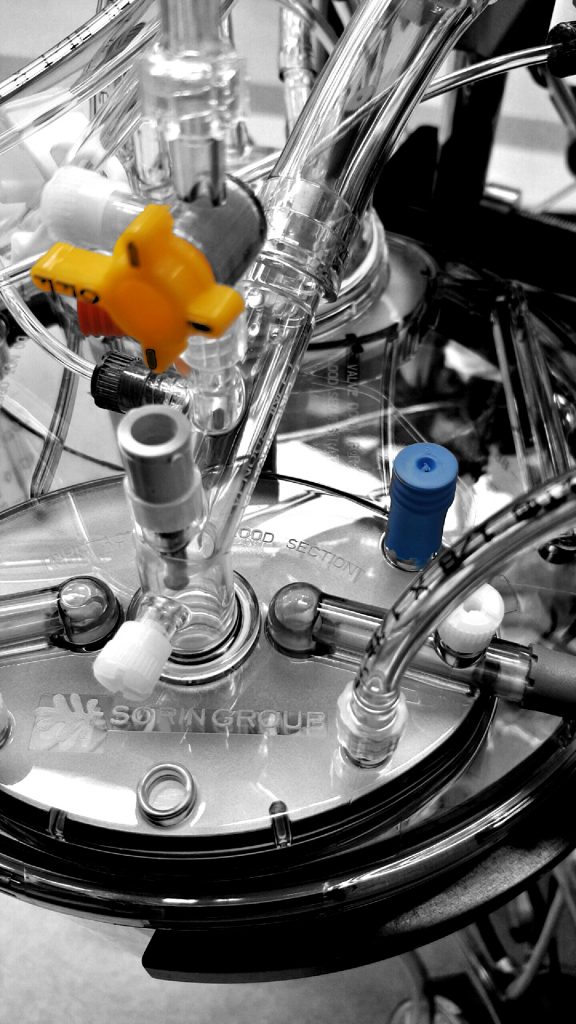LPM: A Student’s Perspective- First Rotation Experience

“If I had to give advice to new students, it would be to know the procedure going on at the table and to know what your surgeons expect.”
Editor’s Note:
This is a continuation of a series with our newest associate editor, Shayla Johnson, who is currently enrolled in a perfusion program. I asked her to join the editorial team because she reflects the passion and excitement that every perfusionist has- or otherwise they wouldn’t do it.
I am impressed that as a perfusion student she has the initiative to share her thoughts and impressions with us regarding the process of learning the art of perfusion technology from her own unique perspective:
“I am a first year perfusion student.I follow your facebook and website to stay updated on perfusion news from all around the world, and I love it. I saw the posting about needing bloggers and wanted to find out if you were interested in a student blogger. Either way, thank you for the work put into the website, it was valuable as I prepared to apply for my program as well as throughout it.
Thank you.”
Shayla Johnson
The name of the series is as above- LPM: A Student’s Perspective. There is a slight play on the acronym as the L stands for Learning as opposed to a metric for Q.
As we all know- regardless of experience level- we all learn minute by minute.
Enjoy 🙂
Frank
Click here to view the entire LPM series
Shayla Johnson, Associate Editor
–
First Rotation Experience
With my first rotation done and under my belt, I can breathe a huge sigh of relief. I did it! I’ve successfully pumped cases, dealt with low volume, pressure issues, and a variety of other problems and somehow safely navigated it. Much of that is due to the great guidance from my preceptors, a group of amazing perfusionists who were so supportive. I’m probably not the only student who was very nervous to start clinical rotations; would I be good at perfusion, or would I even enjoy doing it? After a year of didactic work, it was a very real concern of mine that I would find out I just couldn’t manage actually pumping a case. Worse than that, was what if I found out that I didn’t even want to do it?
Having finished my rotation, I can say that my fears were unfounded. I was able to pump cases, I was able to hit my stride and find a routine for myself that allowed me to feel comfortable while on pump. Most of all, I still found that I enjoyed it even while continuously learning new things and being challenged in new ways. Of course, one of the hardest parts of being on a rotation is that just when everything clicks and falls into place, you pick up and leave just to start all over again. However, my first rotation was so crucial in building a solid base of knowledge and experience. I struggled with using a clamp with my left hand (as my preceptor joking teased-I have small hands!), and to combat that it meant working with a clamp in my left hand as often as possible and finding a way that worked for me to use it on ½” tubing quickly and efficiently.
I left my first rotation site finally feeling confident in my abilities and hit a stride of several weeks where I felt good about each case and that everything had finally come together. Of course, I attribute that to the support from the staff and the work environment that I was lucky enough to be in. Learning about bypass is so different from actually doing it, and I would often say that I knew something in my head, but acting on it quickly on pump was a whole other experience. One of the hardest hurdles to overcome was simply knowing how to respond to a surgeon. In a silent OR, it was intimidating to be the only one to loudly and clearly say something, especially as a new student. There’s no real way to get that experience until you are on your rotations but the difficulty of it surprised me. It got easier as I became more confident, and continuously reminded myself to “speak louder” when answering the surgeon so that there would be no question of whether or not I was doing what they asked.
If I had to give advice to new students, it would be to know the procedure going on at the table and to know what your surgeons expect. Once I learned the routine, it was much easier to anticipate the next step and be prepared. It kept me from feeling like I was behind on my steps and helped me stay ahead of what was going on especially if there were problems. Every hospital, every surgeon, and every procedure has different steps, but learning them is so important to being successful. I was lucky that at my site, our perfusionists were patient with us and helped us learn in a way that allowed us to also build the confidence necessary to handle tough cases. I hope that other students have the chance to experience that and feel like they were able to be part of a team, like I did. I can only say that while your first clinical experience can be daunting and scary, at the same time you will learn so much without even realizing it and the time will fly.


